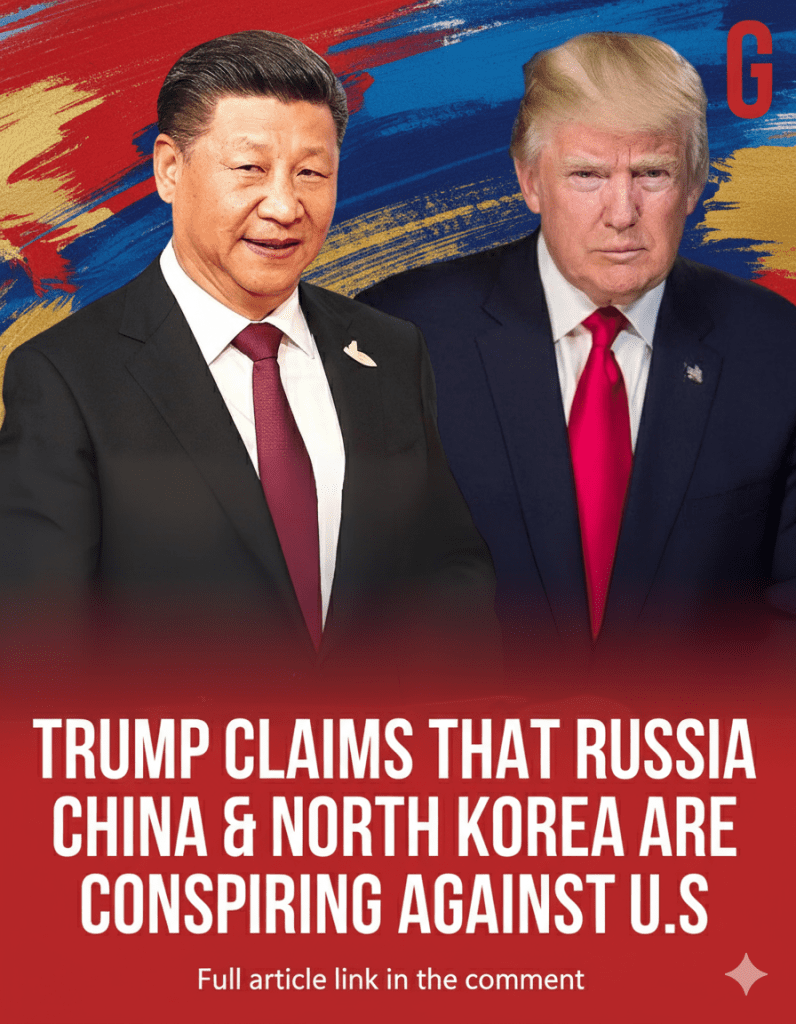Trump Warns Xi, Putin, and Kim Are “Conspiring Against America” After Watching Joint Parade in Beijing
Former President Donald Trump stirred up new global headlines this week with a fiery statement posted to his Truth Social account, in which he appeared to accuse the leaders of Russia, China, and North Korea of actively conspiring against the United States. The message was timed with the release of images from a grand military parade in Beijing, where Chinese President Xi Jinping, Russian President Vladimir Putin, and North Korean leader Kim Jong Un stood side-by-side during the commemorations for the 80th anniversary of Japan’s surrender in World War II. Trump’s post instantly went viral. While some read it as a sarcastic jab, others saw it as something more serious—a warning, maybe even a campaign signal.
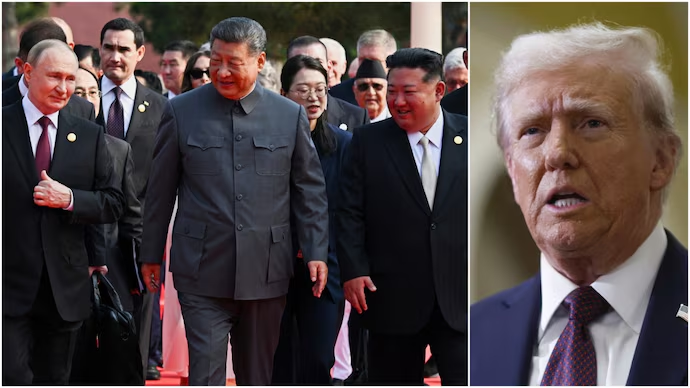
In his post, Trump began with a mocking tone, congratulating Xi Jinping on the parade and its symbolism. But the sarcasm quickly sharpened into something more charged. “Give my warmest regards to Vladimir Putin, and Kim Jong Un, as you conspire against The United States of America,” he wrote. It was a short sentence, but it hit hard, setting off a fresh wave of debate about foreign alliances, U.S. military readiness, and where Trump stands now on global policy. The image of those three powerful leaders—Xi, Putin, and Kim—together at a military event didn’t help tone things down either. The symbolism was too loud. Each man leads a country that has, at various points, challenged American interests on the global stage, and here they were, united visually in a show of force and tradition.
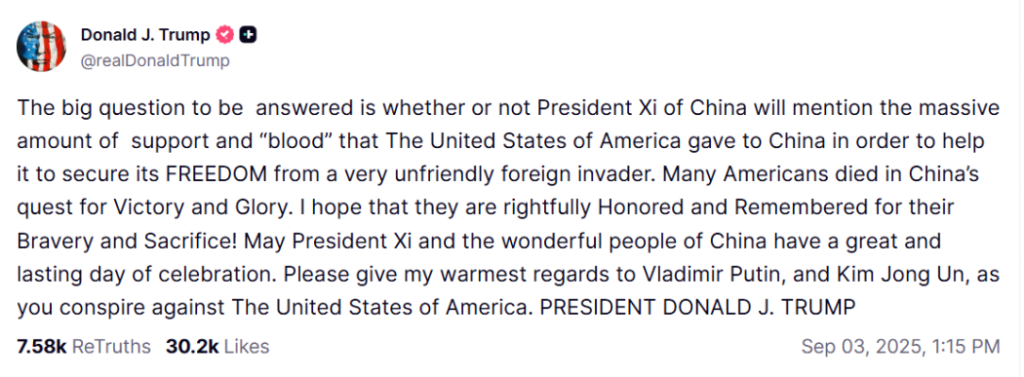
Trump’s critics, especially those abroad, brushed off the comment as hyperbole. Russian presidential aide Yuri Ushakov responded to reporters by saying Trump may have been sarcastic, and emphasized that Moscow has no such plot in motion. “You understand that he’s running for president again,” one official added, implying that Trump’s words were more about politics than actual intelligence or foreign policy insight. But many of Trump’s supporters didn’t laugh it off. They took his warning seriously, pointing to growing cooperation between China, Russia, and North Korea in recent years—from joint military exercises to arms transfers and diplomatic visits that appear to bypass Western influence.
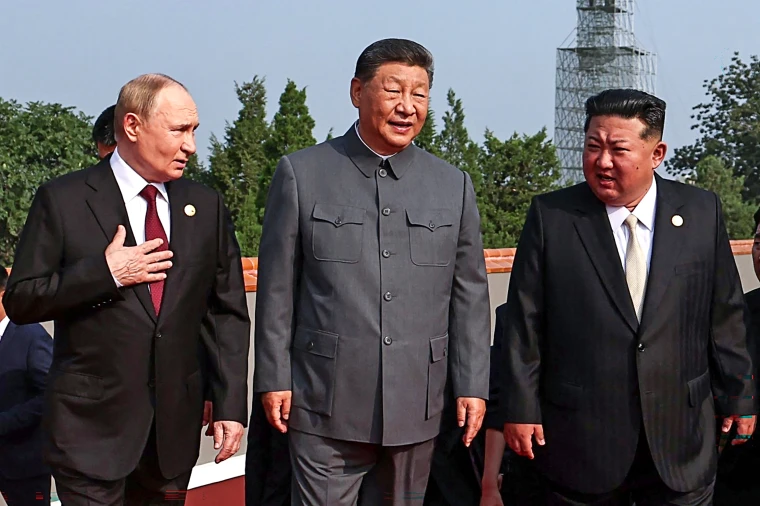
The entire episode has also reopened old questions about U.S. strength on the world stage and the perceived erosion of American influence in Asia. Trump, who has long styled himself as a strongman president and “America First” nationalist, is clearly leaning into global skepticism to fuel his campaign. Whether it’s speculation or strategy, his messaging suggests he wants Americans to believe that under the current leadership, foreign powers are growing bolder—and potentially dangerous.
At the same time, Trump made sure to remind the world of America’s role in history. “Many Americans died in China’s quest for Victory and Glory,” he wrote. “I hope that they are rightfully Honored and Remembered for their Bravery and Sacrifice!” That kind of language adds an emotional undertone to the post, a reminder that beneath all the politics and online outrage, real people once paid the price to protect global peace.
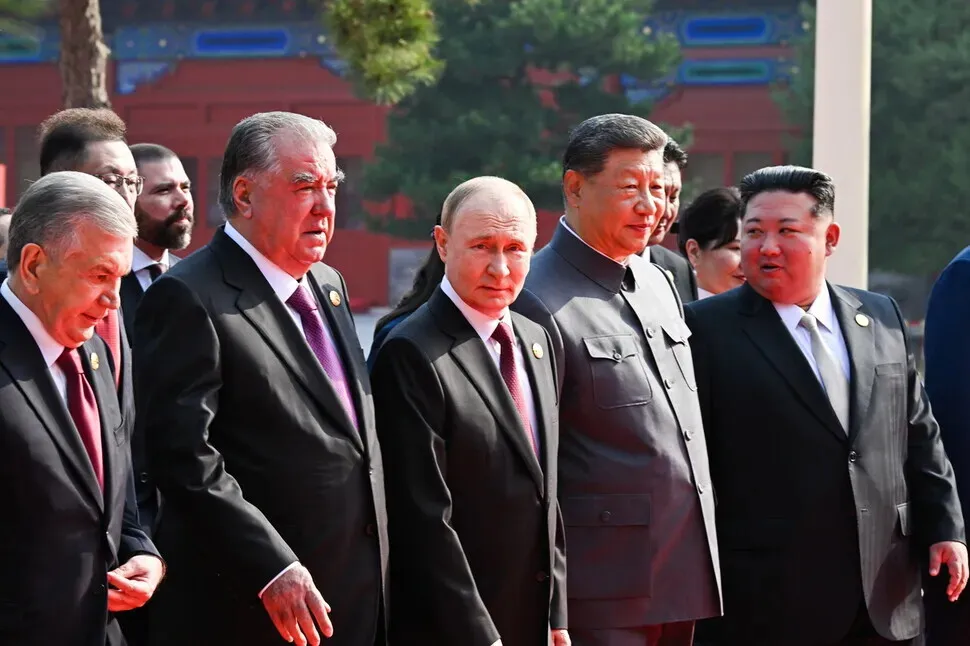
So, is this just campaign drama, or something more? That’s the big question. But what’s clear is that Trump knows how to dominate the spotlight. A short social media post has once again turned into an international headline. And as the 2024 race heats up, it probably won’t be the last time we see him use moments like this—moments of geopolitical symbolism—to speak directly to the fears, concerns, and patriotic fire of his audience.
